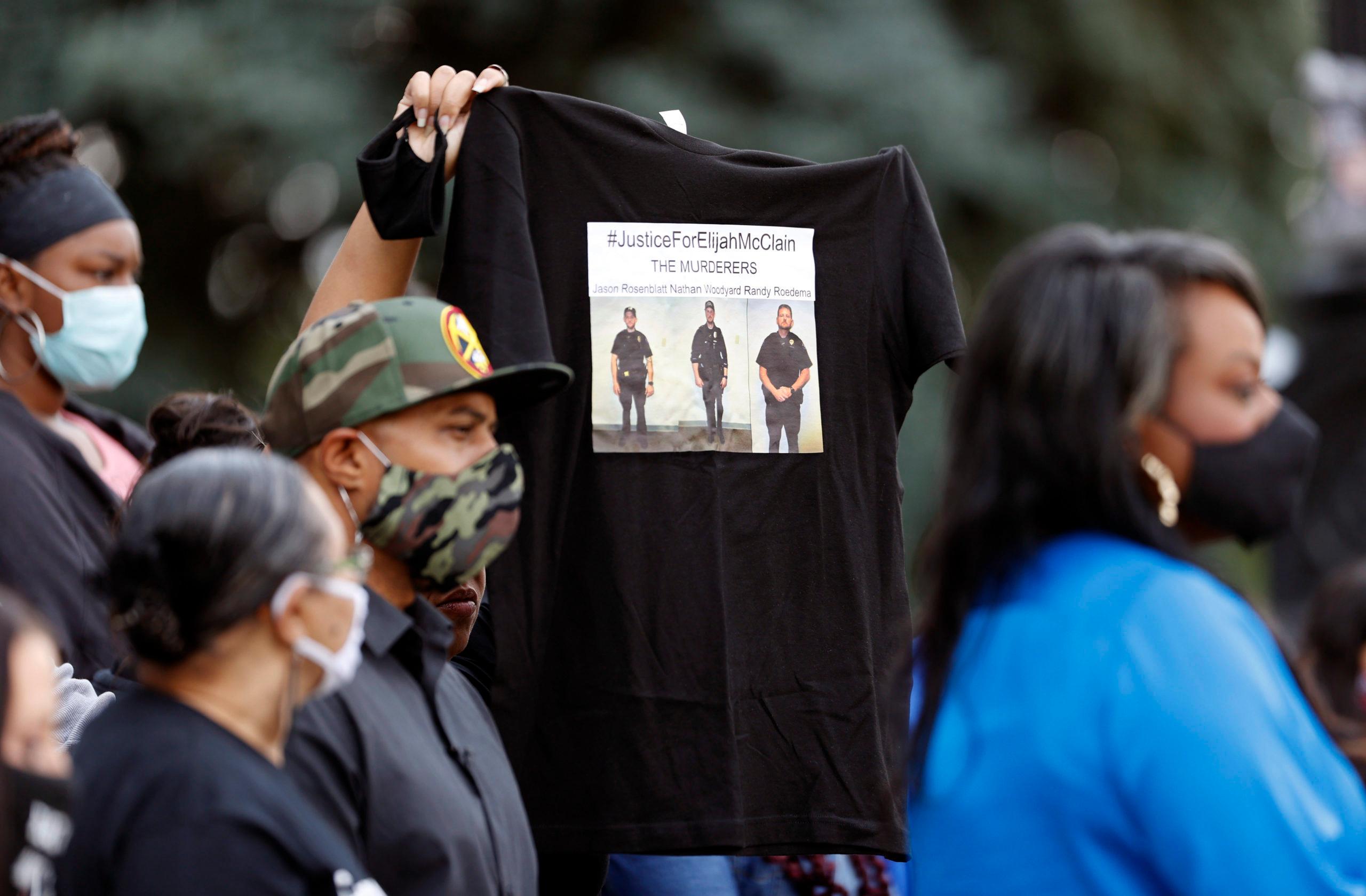
Decisions by the Denver suburbs of Greenwood Village and Westminster to shield their officers from a crucial part of a new state police accountability law sparked warnings by both Gov. Jared Polis and Attorney General Phil Weiser on Thursday.
Under the new law signed by Polis last month, officers can be held personally liable for up to $25,000 in civil judgments if they act in “bad faith.”
Greenwood Village passed a resolution this week saying they would defend and protect police officers in those cases — despite the fact the freshly signed state law specifically prohibits officers’ employers, cities and counties, from doing that.
Elected officials in Westminster vowed to city employees before the July 4 holiday they would shield officers from liability unless they were convicted of a crime.
Both Polis and Weiser spoke out against the local actions Thursday, saying they expected local cities and counties to follow state law.
“This is the law in which all of our police departments and sheriff’s departments operate,” Polis said in response to a question about the Greenwood Village resolution. “We all function under the laws of Colorado, including the changes to civil liability … I’m confident that communities across our state will continue to follow the law.”
Weiser, in a statement, encouraged local governments to implement the state law “as envisioned” and find “appropriate ways to demonstrate their support and appreciation for responsible law enforcement officers.”
“If they decline to do so,” Weiser said. “I expect the legislature will take action in January to address this issue.”
A few dozen demonstrators, including Denver School Board member Tay Anderson, rallied in Greenwood Village Thursday afternoon to protest the resolution.
No elected official in Greenwood Village granted interview requests on Thursday about the resolution passed earlier this week, nor did the city manager answer any questions. In a statement released by a city spokeswoman, officials say they took this action to prevent police officer attrition.
“We in Greenwood Village did not wait for the events that occurred in Minneapolis to examine our procedures and policies to develop professional practices,” the statement said. “Incurring a financial penalty decided by a City Council potentially influenced by media and passions of the day is a far greater risk than many of our police officers are willing to take.”
The statement noted “one senior officer” already decided to leave the Greenwood Village police force because of the additional liability.
“Other officers who are also risking their lives on a day to day basis seeing municipalities who want to defund their efforts calls into question for them whether it is really worth protecting people who don't want them,” the statement said.
Westminster released a similar statement of support last week, vowing to defend officers who are subject to a civil settlement after a lawsuit. On Friday they clarified that the city will follow all provisions of the new law.
“We are beginning to understand the impacts of the Senate Bill 20-217, but are also aware we haven’t begun to see the full impact on your ability to serve the public and most importantly the impact on you personally and your family,” the Westminster statement said, which was addressed to the city’s police force. “Please know, the city intends to defend and indemnify its police officers for any liability incurred by them, including any judgement or settlement entered against them … unless the police officers are convicted of a criminal violation.”
A spokesman for Westminster referred questions to the Westminster Police Department on Thursday. A spokeswoman for the police department referred questions back to the city.
The expansive police accountability law, passed in both chambers of the state legislature earlier this summer with bipartisan support, was supposed to make it easier for individuals to sue individual cops who acted in bad faith. The law also puts restrictions on when officers can use deadly and non-deadly force. It enhances reporting requirements to state agencies on who officers stop and when they use force and it requires body-worn cameras for every officer.
The law was not opposed by police unions or the state’s sheriff association.
The law says a police officer’s employer can cover the cost of a judgment entered against them, unless the employer determines the officer “did not act upon a good faith and reasonable belief that the action was lawful.” In those cases, the law requires the officer to be held liable.
On Thursday, in response to actions taken by Greenwood Village and Westminster, the County Sheriffs of Colorado said in a statement that local governments shouldn't take additional steps to protect bad officers.
“While Colorado communities face unique challenges and will respond how they best see fit, we believe there is a way to stand behind good officers who act in good faith, while not indemnifying officers who don’t,” the statement said. “No one is here to protect bad officers and deputies, and it’s important for communities to trust those who have sworn to serve and protect them.”
Kevin Bommer, executive director of the Colorado Municipal League, which speaks out on behalf of local governments, said he didn’t expect what was happening in Westminster and Greenwood Village to be a huge trend — but that cities were clearly struggling with how to respond to such a sweeping law that was passed quickly.
“It will probably get messier before it gets resolved,” Bommer said. “As an organization, we were in the process of determining how to help our members manage their administration and implementation of the new law and this wasn’t one of the things that we were contemplating.”
Editors Note: This story has been updated to more accurately reflect the statement from the County Sheriffs of Colorado and the context of Gov. Polis' comment.









